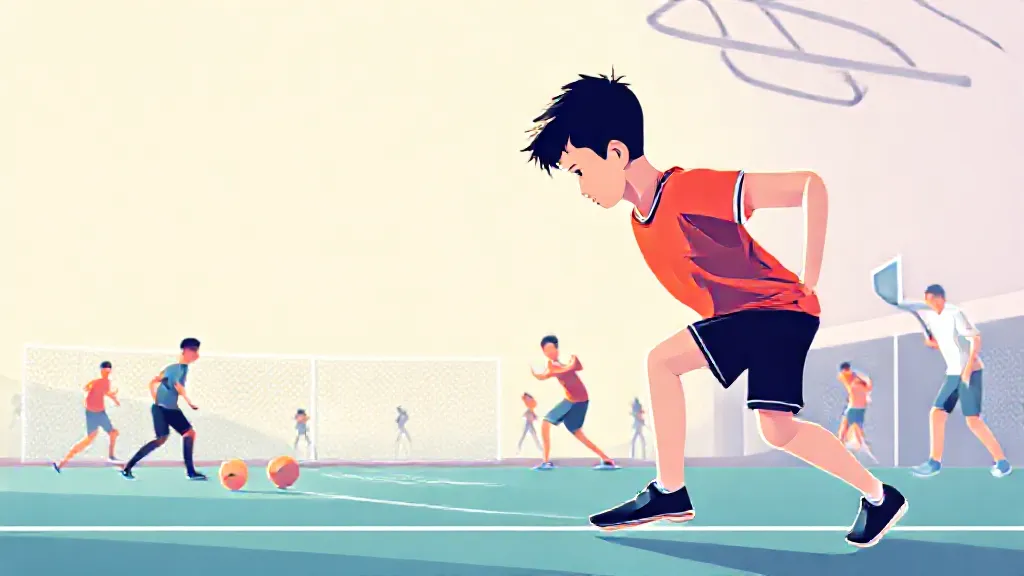In the world of sports, young athletes often find themselves at a crossroads, faced with numerous choices regarding where to focus their efforts. The array of options can be overwhelming, ranging from skill development to physical conditioning, mental toughness, and even social dynamics. Understanding where to concentrate their energies is crucial for young athletes aiming to excel and enjoy their sporting journey.
Skill Development: The Foundation of Athletic Success
At the heart of any athlete's success lies skill development. Young athletes should prioritize honing the fundamental skills specific to their chosen sport. This entails not only mastering basic techniques but also engaging in deliberate practice that challenges their abilities.
For instance, a young soccer player should focus on dribbling, passing, and shooting drills, while a budding basketball player should work on shooting form, dribbling under pressure, and defensive techniques. By dedicating time to skill refinement, athletes build a solid foundation that will support their growth as they progress through their sporting careers.
Physical Conditioning: Building Strength and Endurance
Physical conditioning is another critical area where young athletes should channel their efforts.
Developing strength, speed, agility, and endurance is essential for performance enhancement and injury prevention. A well-rounded conditioning program tailored to the athlete's age and sport can include strength training, cardiovascular exercises, and flexibility routines. For example, young track athletes may engage in sprint drills and plyometrics to boost their explosive power, while swimmers could focus on swim-specific strength workouts to improve their stroke efficiency.
Mental Toughness: The Psychological Edge
In addition to physical prowess, mental toughness plays a significant role in an athlete's success. Young athletes must learn to cultivate resilience, focus, and a positive mindset. Techniques such as visualization, goal setting, and mindfulness can help athletes manage pressure and stay motivated.
For instance, a young gymnast might use visualization to mentally rehearse routines before competitions, enhancing both confidence and performance. Coaches and parents can support this development by fostering an environment that encourages a growth mindset, where mistakes are viewed as opportunities for learning rather than setbacks.
Nutrition: Fueling Performance and Recovery
Nutrition is an often-overlooked aspect of an athlete's training regimen.
Young athletes should educate themselves about proper nutrition to fuel their bodies effectively and aid recovery. A balanced diet rich in carbohydrates, proteins, healthy fats, vitamins, and minerals is vital for optimal performance. For example, a young football player may need to focus on complex carbohydrates for sustained energy, alongside protein for muscle repair.
Understanding the importance of hydration and meal timing can also significantly impact an athlete's performance and recovery.
Social Dynamics: Teamwork and Communication Skills
Participating in sports offers young athletes invaluable opportunities to develop social skills. Learning to work as part of a team, communicate effectively, and resolve conflicts are essential life skills that extend beyond the playing field.
Coaches and parents should encourage athletes to engage with their teammates, fostering a sense of camaraderie and collaboration. For instance, a young volleyball player who practices effective communication on the court will not only improve team performance but also develop skills that will benefit them in personal and professional relationships later in life.
Time Management: Balancing Sports, School, and Life
As young athletes juggle training, competitions, and academic responsibilities, effective time management becomes crucial.
Athletes need to learn to prioritize their commitments and create schedules that allow for adequate training while also attending to schoolwork and personal life. Tools such as planners or digital calendars can help athletes allocate time for practice, homework, and rest. By mastering time management, young athletes can reduce stress and enhance their overall performance in both sports and academics.
Long-Term Development: Setting Realistic Goals
Young athletes should focus on long-term development rather than immediate success. Setting realistic, incremental goals helps maintain motivation and provides a clear pathway for improvement. For instance, a young swimmer might aim to improve their personal best times gradually rather than fixating on winning every race.
This approach fosters a love for the sport and encourages athletes to embrace the journey of growth and learning, rather than solely focusing on outcomes.
Conclusion: A Holistic Approach to Athletic Development
In conclusion, young athletes should adopt a holistic approach to their development by focusing on skill enhancement, physical conditioning, mental toughness, nutrition, social dynamics, time management, and long-term growth. By prioritizing these areas, athletes can set themselves up for success both on and off the field.
Coaches and parents play a vital role in guiding young athletes, helping them navigate their choices and encouraging a balanced and fulfilling sporting experience.
